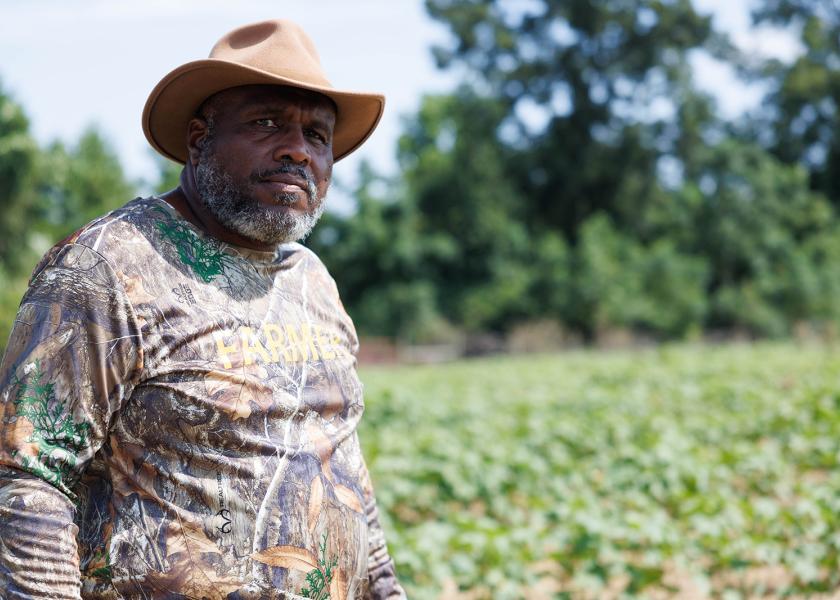How Diversification Can Help Minority Farmers Thrive: Q&A with Ricky Dollison

For Black History Month, Ricky Dollison shares insights about what it means to be a Black farmer in the U.S. and advice for young farmers looking to break into the industry. Dollison is a fourth-generation row crop, specialty crop and livestock farmer in Poulan, Ga. He also works to educate policymakers and consumers about agriculture’s contribution to global food security as a Farmer Ambassador with Farm Journal Foundation.
How did you get into farming, and how has the business changed over time?
“I guess you could say I didn’t have a choice. I was born into this. Years ago, in the late ’60s and early ’70s, my parents taught all of us to get an education and get a good job. Fast forward to 2024, I still say get a good education. If you own land, farming is a business. You can make money if you stay focused and think outside of the box.”
Farming can be volatile with a lot of ups and downs in the markets. Can you talk about how Dollison Farms has diversified to maintain a strong business?
“Here at Dollison Farms, some years back, I took a beating, figuratively speaking. I was selling swine to a stockyard, and they were just taking my hogs. So, I just asked the Lord to give me something, give me some business. That’s when I started thinking about this sausage business, Warrior Creek Premium Meats, and then we started specializing. We raise our hogs. We grow peanuts, cotton and corn. We grow watermelons and cantaloupe. At our farm, we’ve got to have diversity because we don’t have thousands and thousands of acres. I am one of two BIPOC (Black, Indigenous, People of Color) farmers in the state of Georgia that has an orchard of persimmons, elderberry and chestnuts. These little niche markets, they work, they help. I market through radio, television and the World Wide Web. E-commerce is good for us, and we ship all over the country.”
What are some of the challenges young minority farmers face today?
“This work is difficult, and it’s hard for new farmers to break in. The good things I’m doing now didn’t happen overnight. I’ve been doing this a long time, and I took a beating the first few years. We’ve had to scratch and claw our way. But when we make money, we invest back into us.”
What advice do you have for farmers who are just starting out?
“Network with older farmers like me or seasoned veteran farmers. Learn whatever your gift is, whatever you want to do – whether it’s growing herbs or vegetables or livestock or poultry. Learn it inside and out. As a beginning BIPOC farmer, you will not be able to throw money at a project and then say, ‘Well that didn’t work, I guess I’ll try something else.’ You might get two times before your finance people shut you down. So, you have to learn it, so you can be able to navigate through it.
“As a young person, if you’re not going to be proud of what you do, don’t waste your time. Be proud of what you do, and everywhere you go, be excited about it and talk about it. Make it so you know it so well you can talk at length about what you do, how it benefits others and how it’s healthy to the community.”







